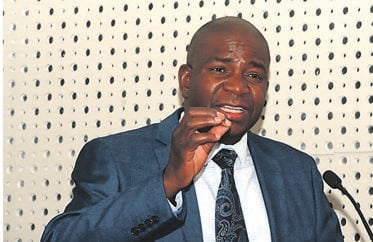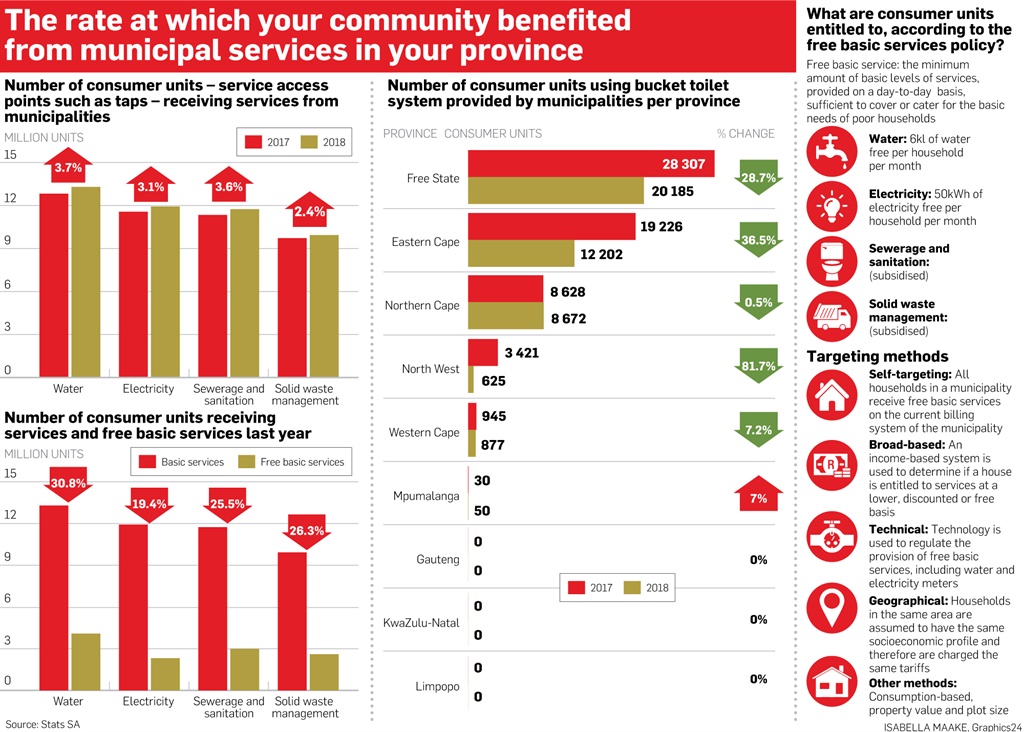
The influx of people to informal settlements remains a constant battle for municipalities wishing to eradicate a legacy of apartheid – the bucket system.
On the sidelines of a media briefing in Pretoria on Thursday, Statistician-General Risenga Maluleke told City Press that municipalities were opting to procure bucket toilets because they were easy to obtain, assuming that these communities would stay temporarily in informal settlements.
At the briefing, he tabled the non-financial census report of municipalities detailing service delivery data recorded between 2017 and last year.
This data could serve as a framework for policymakers and others to use for planning and monitoring purposes.
According to trends, 37 out of 257 municipalities provided bucket toilets last year.
“But you should understand that municipalities have gone out to say that they want to eradicate the bucket system. But they are racing against a growing population. The population of South Africa is growing. The number of households is increasing, especially in urban centres,” Maluleke said.
In total, there were 42 612 recorded bucket system toilets and 8 231 of these (19%) were located in Setsoto Local Municipality in the Free State.
. Free State – Nala Local Municipality (9%), Metsimaholo Local Municipality (4%) and Mangaung Metropolitan Municipality (3%);
. Eastern Cape – Nelson Mandela Bay Municipality (17%) and Kouga Local Municipality (9%); and
. Northern Cape – Sol Plaatje Local Municipality (7%), Dawid Kruiper Municipality (5%) and Siyancuma Local Municipality (5%).
Despite this, Maluleke said, trends showed that provision of the bucket system decreased from 60 557 consumer units in 2017 to 42 612 units last year.
He said there was a varying degree of provision of services to the indigent population by provinces.
Maluleke declined to comment on whether the numbers showed regress or progress.
“It’s not for the Statistician-General to start assessing policy and say we still have more to be done. The job of the Statistician-General is to make numbers available and, of course, if you look at different cohorts of services you can see in some provinces improvement and in some provinces we see a decline. But even when you look at that in relation to services in general, the provision of water for example, there was an increase between 2017 and last year in terms of consumer units by 3.7%. Free basic water has decreased by about 14%. So once those people in this category are decreasing, you can see that there are people who are graduating.”
He said this was the same trend with free basic electricity, which decreased by 10%.
Read: Municipal census reveals severe lack of service delivery
Free basic sanitation, he said, also decreased by 16.7%, followed by free basic solid waste management, which decreased by 5.8%.
“So all the people in service consumer units who are receiving free basic services have actually been on a decline. There has also been a decline of the bucket system. That can tell you that there is some improvement somewhere occurring, whereas the number of indigents has increased on the basis of the fact that municipalities are out there encouraging indigents to register.”
The number of indigents increased from 3 511 741 in 2017 to 3 631 443 last year.
But, he said, municipalities had also started taking out of the indigent category those who used to benefit but could afford paying for services.
He said this used to happen because some municipalities were using a broad-based method which provided free services for everyone.
These municipalities were allowed to do so within their operations.
He said the municipalities were currently assessing qualifying indigents using other methods, including, among others, child-headed households and female-headed households, but the qualifying criteria were the discretion of each municipality.
TALK TO US
How can departments work together to track migration trends to eradicate bucket toilets?
SMS us on 35697 using the keyword BUCKET and tell us what you think. Please include your name and province. SMSes cost R1.50. By participating, you agree to receive occasional marketing material
 |
| ||||||||||||
| |||||||||||||




 Publications
Publications
 Partners
Partners









